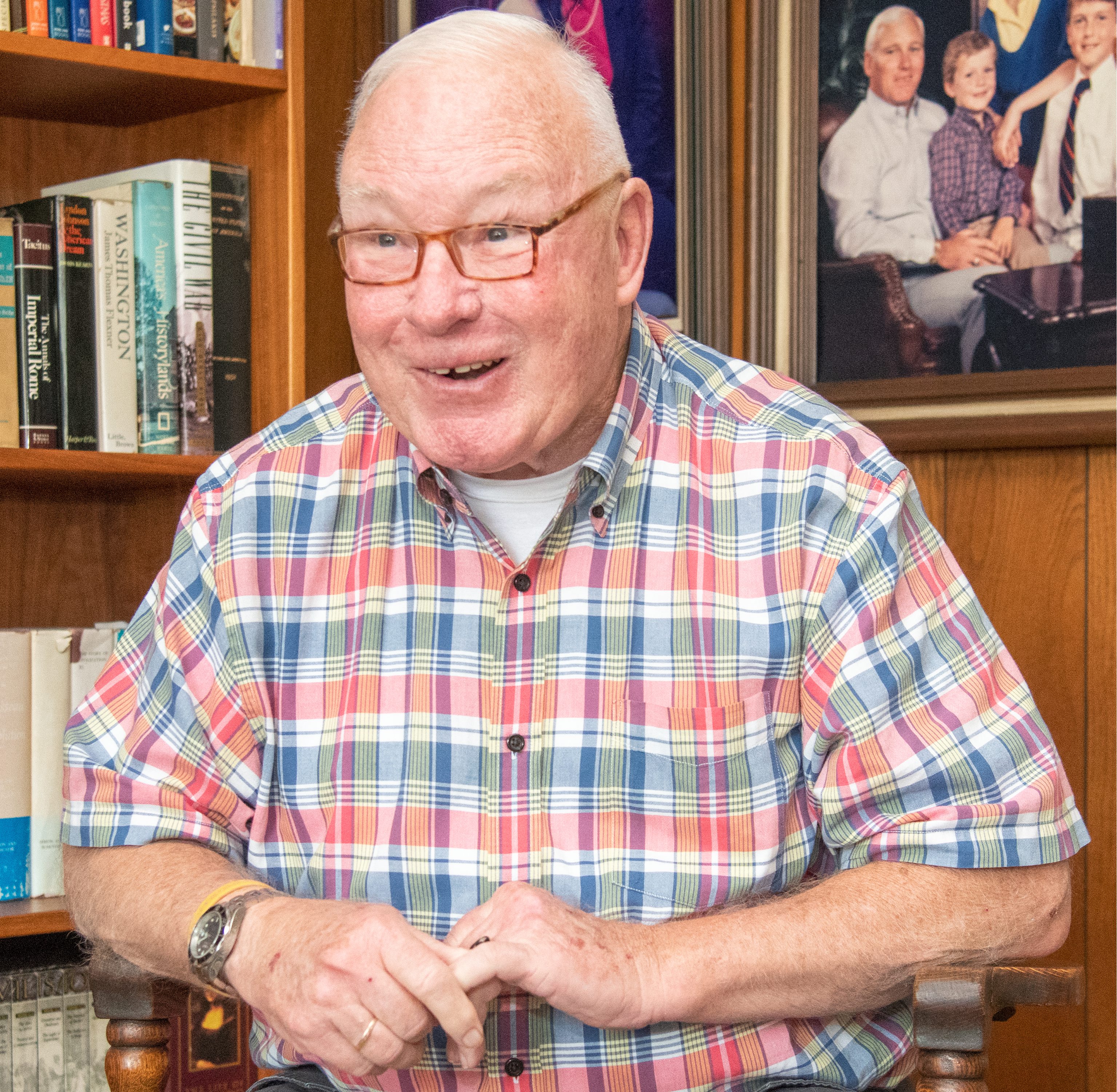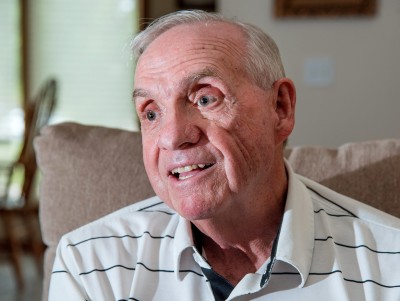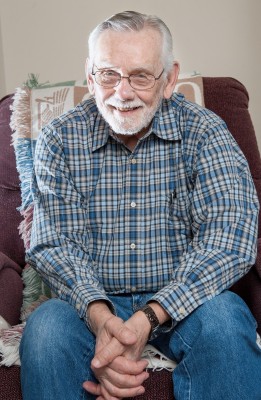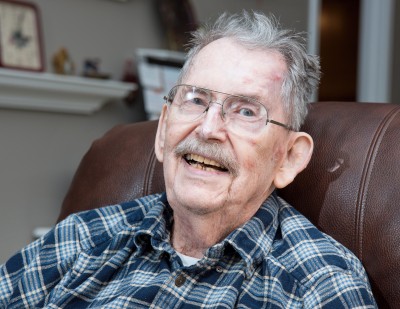Gene Lamkin
By Paul Wood

Photo By Robin Scholz/The News-Gazette
CHAMPAIGN — Lt. Col. Gene Lamkin had a varied career:
He was in Okinawa, then Vietnam, at the Pentagon for a while, spent some time in Europe and even in Crete.
It was a long way from Urbana, where he graduated from the University of Illinois in physical education, after a false start in history.
“I jammed four years of college into five years,” he said.
Lamkin, 74, never did teach, largely because ROTC put him on the officer track.
In 1968, he was in training, then assigned to Hawks, highly mobile medium-range surface-to-air missiles.
The missiles he worked with had up to a 30-mile range, Lamkin said.
At Okinawa, Lamkin served from 1968 to 1970 near Kadena Air Base, where B-52s were launched to bomb North Vietnam.
Soviet airplanes, including the “Russian Bear” bomber, flew from Vladivostok, a Russian port, past Korea and Japan to Okinawa, putting the base’s defenses to the test.
“They knew when our radars locked on them,” Lamkin said, and they veered off.
“The Soviets didn’t want to start World War III, and neither did we,” he said.
In February 1971, he was sent to Vietnam. As part of his upward course as an officer, he was moved into a different area, taking responsibility for property at Quang Tri — only a few miles from the demilitarized zone and North Vietnam.
Even at the base, sappers — commandos — could slip in at night, sometimes after serving as workers during the day.
They could be effective.
“They blew up 400 tons of black powder” at one point, Lamkin said. “It brought the dust out of everything.”
At this stage of the war, starting a drawdown, the enemy were North Vietnamese regulars, not the Viet Cong.
From 1973 to 1976, he was stationed in Germany, returning to a Hawk missile group.
It was still the Cold War.
“If something happened, we were a NATO asset,” he said.
Back in the states, he was part of a team trying to determine Army specifications for a large military transport aircraft that might replace the C-130.
He was made a major in February 1979. Four years later, he was at the Pentagon.
But there was still more travel late in his career, as commander of U.S. forces in a NATO mission on Crete.
Lamkin loved the Greek island and worked with NATO forces from all over Europe.
Then it was time to retire, and he is glad for his chance to serve the country.
“I always wanted to be in the Army,” Lamkin said, following in his father’s steps after decades.
Do you know a veteran who could share a story about military service? Contact Paul Wood at pwood@news-gazette.com.
Read more stories from local veterans:
 Robert Alsop
CHAMPAIGN — At an outpost that could have been overrun any minute by the smallest of North Korean forces, Robert Alsop w …
Robert Alsop
CHAMPAIGN — At an outpost that could have been overrun any minute by the smallest of North Korean forces, Robert Alsop w …
 Herman Schneider
RANTOUL — He watched Nazis on trial and saw monsters like Hermann Goering humbled — sentenced to death, Adolf Hitler’s f …
Herman Schneider
RANTOUL — He watched Nazis on trial and saw monsters like Hermann Goering humbled — sentenced to death, Adolf Hitler’s f …
 Fred McCauley
CHAMPAIGN — In September 1952, recent MIT graduate Fred McCauley came to Korea to serve as a forward observer for a mort …
Fred McCauley
CHAMPAIGN — In September 1952, recent MIT graduate Fred McCauley came to Korea to serve as a forward observer for a mort …